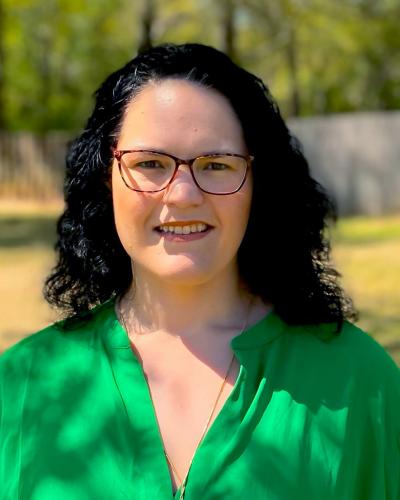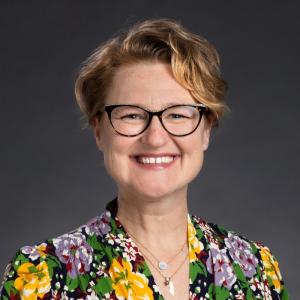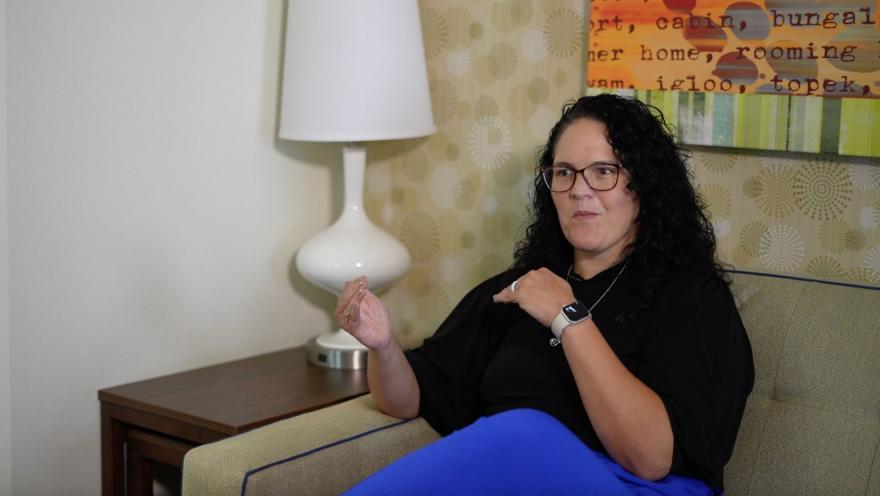In recognition of National Wellness Month, we are exploring the many facets of wellness and the ALS community, shining a spotlight on the act of practicing healthy habits to attain better physical and mental health outcomes.
The journey to wellness is unique to each person. Practicing wellness and self-care is key to improving your ability to live a longer, healthier life. Making a concerted effort to keep your mind healthy is just as important as keeping your body healthy, particularly for people living with ALS and their caregivers.
No one knows this more than Melissa Enfinger, a care services director for The ALS Association based in Alabama. Melissa recently joined us on a Connecting ALS podcast episode to help us better understand the role wellness plays in making ALS livable and improving a person’s quality of life and share information about a mental health networking program she is spearheading to help the ALS community.
The following partial transcript of that conversation has been edited for brevity and clarity.
What do we really mean when we talk about wellness?
I think that you'll find that there are different ways to frame and discuss wellness depending on who you ask. But when I consider wellness, I really think of it beyond just a state of wellness. And actually if you go to the Global Wellness Coalition, they really define it as the active pursuit of activities, choices and lifestyles that lead to a state of holistic health. And I think what's really important is they really give two important aspects of that definition.
The first is wellness is not a passive or static stage, but it's an active pursuit. A lot of times in care services we talk about the importance of being proactive in your treatment and care. So that's how I really think of wellness, is that you are proactively making choices, setting intentions that are helping you work towards an optimal state of your health and being, and that is in whatever circumstance or stage that you're in at that point.
And the second is it's holistic. We have self-responsibility for our own choices, behaviors and lifestyle, and those are, of course, influenced by a lot of external factors. But we're making positive, intentional choices about what our wellness looks like.

To what extent is pursuit of things that bring us joy, to what extent does that factor into say my definition of wellness, an individual's definition of wellness?
I think it's essential because a lot of times people think of wellness in a healthcare kind of component as like, "Am I physically well?" But to me, I think of your physical health as being the form that allows the function of full wellness pursuits and activities. Those personal things that you enjoy are the things that add value and life to your life, and that's very different for everybody.
And I've seen people do all kinds of things to adjust their environment and their life in a way that allows them to continue to do those things that bring them joy and wellness. I live in Alabama, so there's a lot of our state that's very rural and nature based. For example, I worked with a gentleman who very much enjoyed nature and his farm and being able to interact with animals and see things on the farm.
He wasn't interested in TV or video games at all. So one of the things they did as he continued to progress is he took out one of the walls in their bedroom and turned it into a picture window, and then set up what I would call almost an animal sanctuary at the front. He had bird feeders and squirrel feeders and different types of plants that were seasonally blooming so that he could still really enjoy nature anytime that he was sitting in his bed or in his chair from the room if he couldn't get out onto the farm that day, and that was an important part of his wellness, very much person centered.
Wellness has a tangible connection to mental health, and I wanted to ask about the mental health referral network and the role that it can play in wellness and overall health.
There’s certainly been more of a focus on mental health overall, I believe. But back in 2001, The ALS Association here in Alabama was fortunate to receive some funding from MT Pharma America to start the building of our ALS Mental Health Referral Network, and we are continuing that goal and there's really three major components of that.
One of them is education. We partnered with Mental Health America to provide some continuing education content for mental health professionals that are interested in supporting people affected by ALS with their mental and emotional wellness. We also have some resources and materials that we like to share and connect people with that have been created and are internally available from The ALS Association, and then building that referral network.
Some of the feedback we receive, not only from people living with ALS but from caregivers and family members, is that when they are seeking a therapist or a mental health professional, they want to know who it is that might already be familiar with some of the individual's struggles that come along with an ALS diagnosis because otherwise the burden can very much be on the person affected by ALS to then do the explaining and education with that therapist. So that puts more of the burden on them.

One of the things we're doing right now is working on a survey through the University of Minnesota, and Dr. Melinda Kavanaugh is supporting us, to survey mental health professionals that are interested in supporting mental health for people affected by ALS. We want to know from them what kind of training services and supports do you need to where you feel most competent and able to support people living with ALS and their mental health care needs. We're excited to see what that survey turns out and then certainly continue to build content and education around the resource.
But we have so much further to go. One of the things that's really exciting is that we really have an opportunity to grow it well beyond Alabama throughout the entire United States. So this referral network is really open to any mental health professional within the US. So we would encourage any of them to please not only take this survey, but to get on our mailing list to learn about trainings. And again, it's with Mental Health America, so it is nationally based, and you're going to be able to get your continuing education credits no matter which state you're licensed in.
If you are a mental health professional, or know someone who is, please share information about this new program, or contact melissa.enfinger@als.org to learn more.
To listen to the Connecting ALS Podcast, “Prioritizing Wellness While Living With ALS,” CLICK HERE.
To continue to follow stories about people living with ALS in the community and learn more about the disease, subscribe to receive our weekly blogs in your inbox HERE or follow us at als.org/blog.


Comments
This blog references funding received in 2001. That’s 22 years ago, several lifetimes ago for someone with ALS. ALS patients deal with the fact that theirs is a one-way journey and they’re the only one taking it. The specter of death is always there. Counseling and therapy should be combined with medical and clinical care and should be part of ALS clinics at centers of excellence instead of just treating the physical symptoms and conditions of ALS.
Join the conversation. Please comment below.